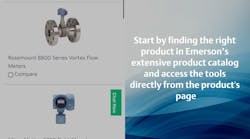David W. Spitzer
Why does ketchup not flow out of an upside down container but flows quickly once started?
Commentary
The viscosity of a Newtonian fluid is defined by the composition and temperature of the liquid. For example, the viscosity of water at a given temperature is the same regardless of physical manipulation.
However, the viscosity of non-Newtonian liquids is dependent on the temperature of the liquid and how it is stressed. Ketchup is a non-Newtonian liquid that exhibits a high viscosity at rest that becomes lower when stressed for a time. Therefore, ketchup does not flow until it is stressed for a while. This is why it does not flow out of an upside down ketchup jar. However shaking the jar (adding stress) for a while can make the ketchup flow out of the jar — sometimes relatively quickly.
READ ALSO: QUIZ CORNER — How changes in pressure and temperature affect process gas
Nonetheless decreasing the temperature of the ketchup tends to decrease the ability of the ketchup to flow. Therefore, it might be advisable to remove ketchup from the refrigerator prior to use so it can warm up and flow a bit better when used.
Additional Complicating Factors Some liquids exhibit other non-Newtonian behaviors. For example, the viscosity of some liquids is high until stressed after which it can exhibit a dramatically lower viscosity. The behavior of other non-Newtonian liquids can be baffling because increasing stress (pumping harder) can actually increase the viscosity of the liquid.David W. Spitzer is a regular contributor to Flow Control magazine and a principal in Spitzer and Boyes, LLC, offering engineering, training, strategic marketing consulting, distribution consulting, and expert witness services for manufacturing and automation companies. Spitzer and Boyes is also the publisher of the Industrial Automation INSIDER. Mr. Spitzer can be reached at 845 623-1830 or via www.spitzerandboyes.com.




